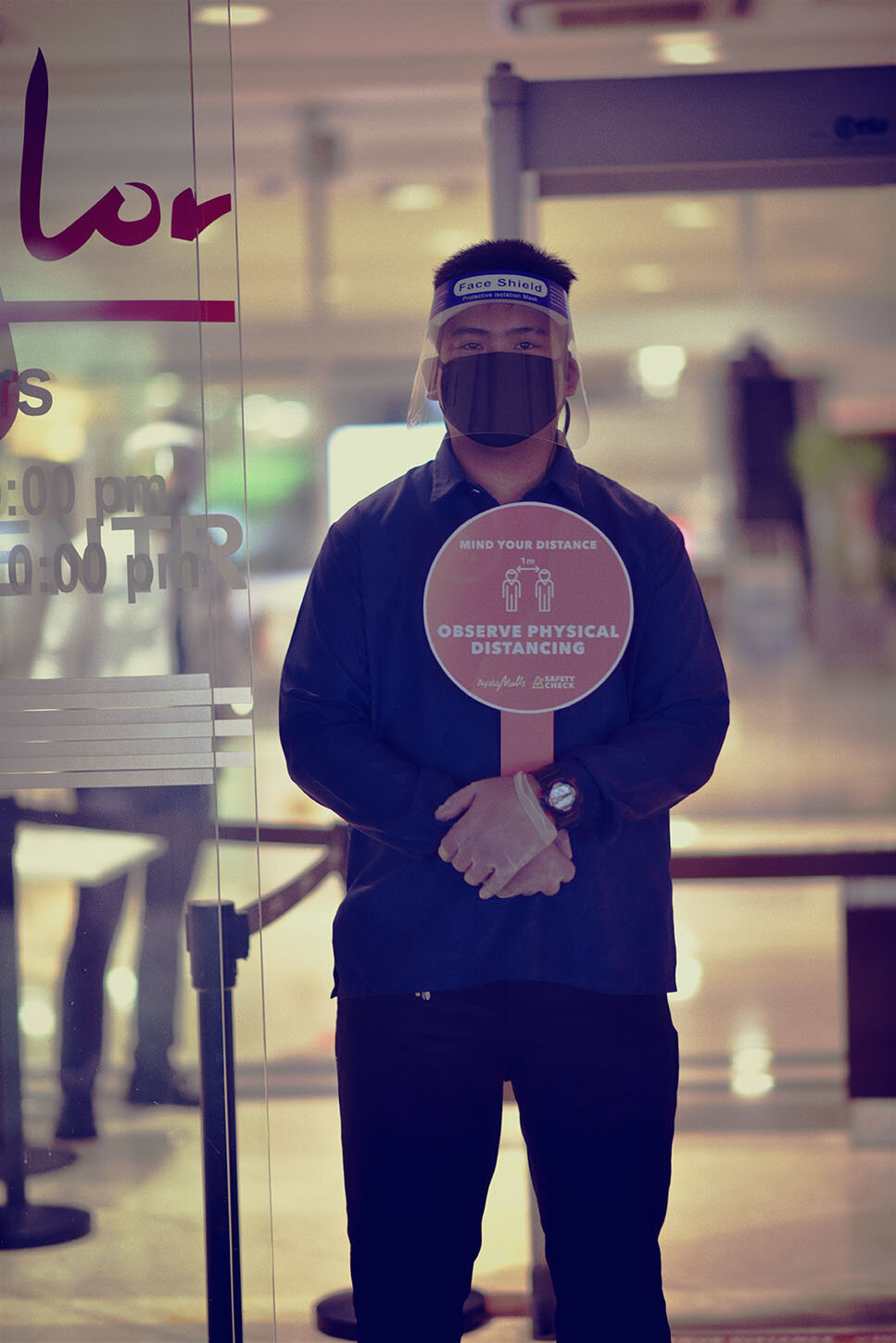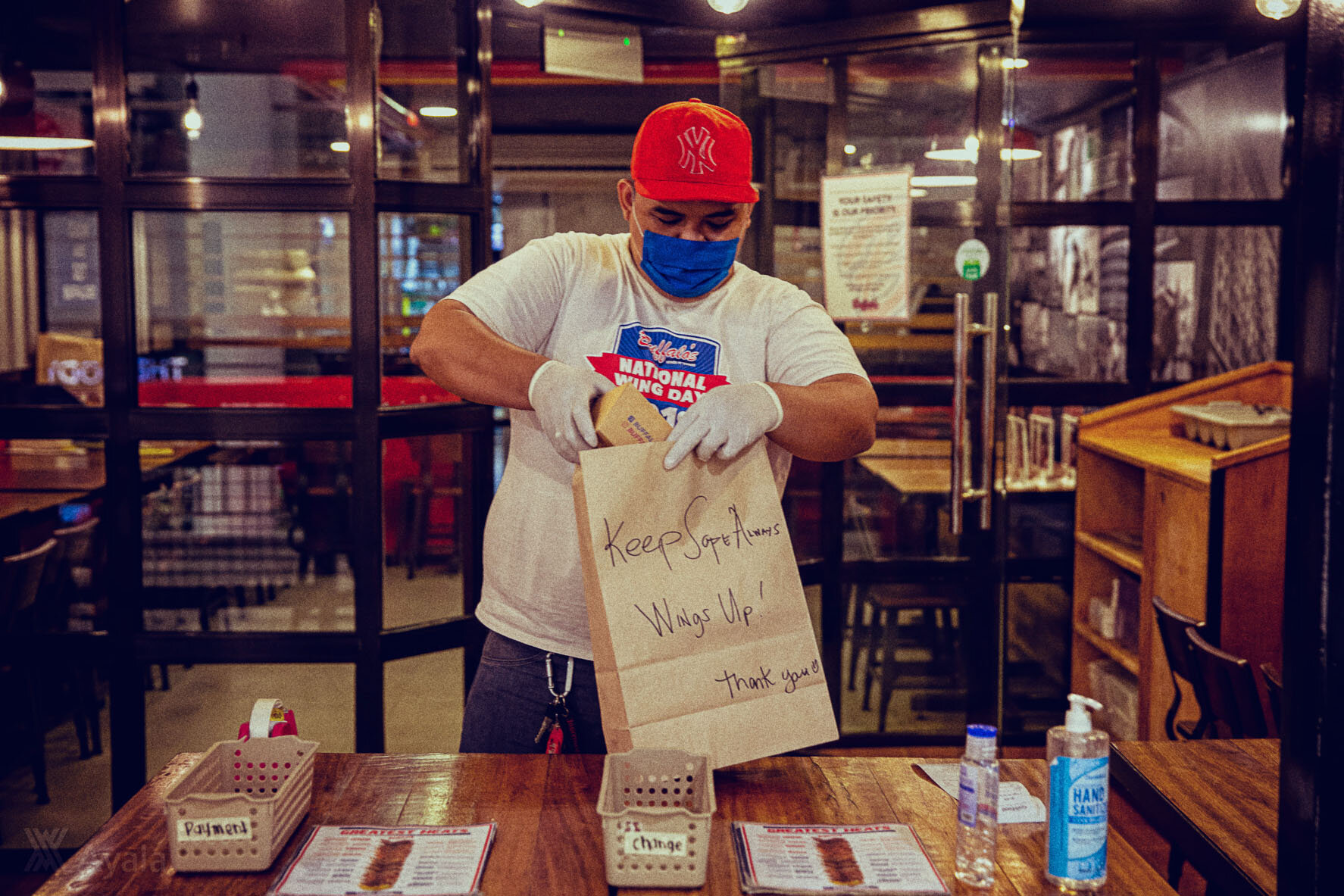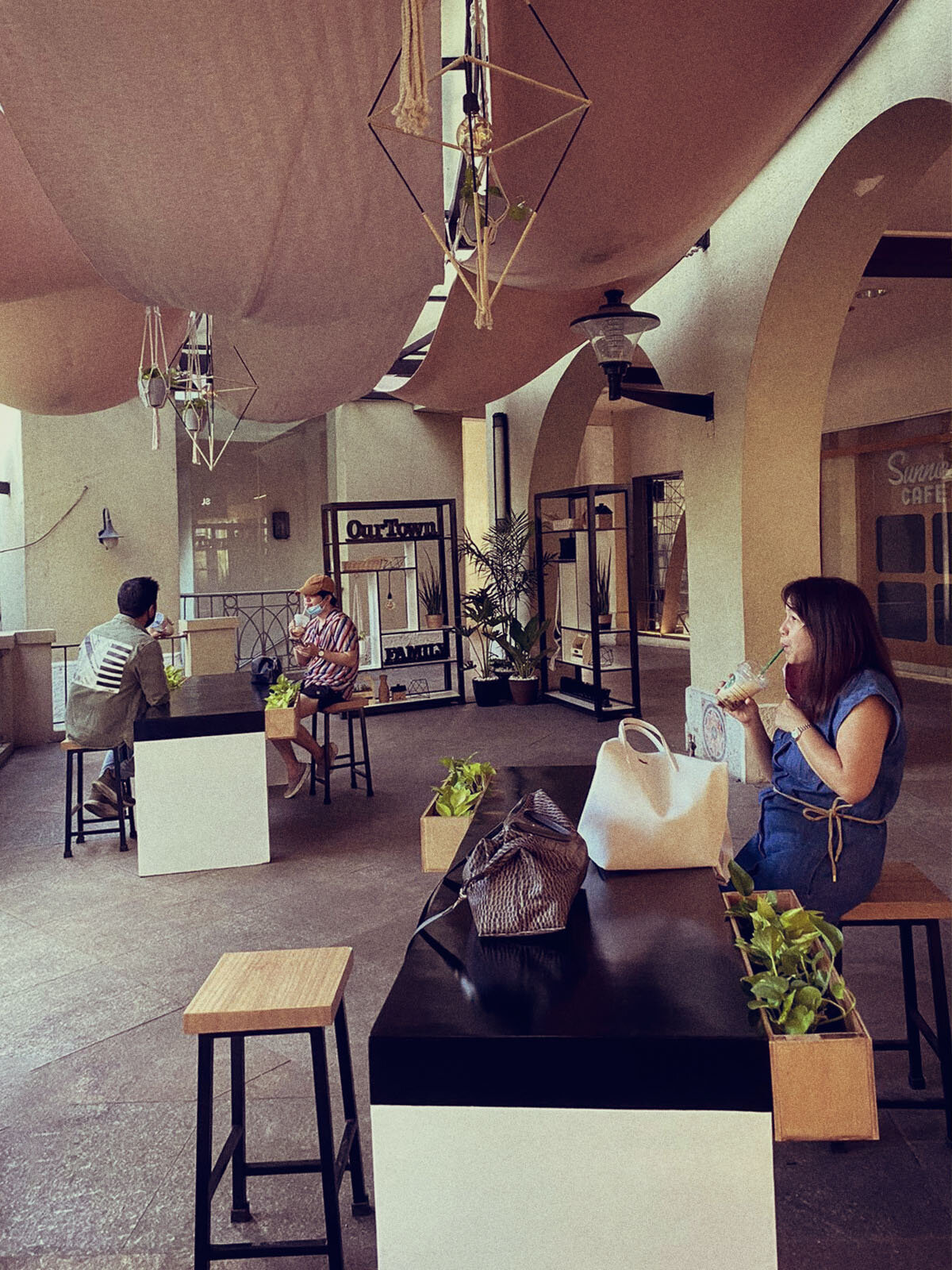Keeping Doors Open
COVID-19 can kill businesses, too. Ayala Malls’ Mark Sablan shares how the company supported merchants through a painful lockdown
Words by RHYS BUCCAT
In 1996, Bryan Tiu opened the door of his first Domino’s Pizza franchise. And since then, he never stopped—he just continued conceptualizing, opening, and selling restaurants.
Bryan still remembers the day he opened his first mall-based restaurant in Glorietta, Teriyaki Boy. “It was a dream come true for me. There’s a connotation that you have to be an established brand in order to make it to the malls. But Ayala supported me. And since then, alam kong iba ‘yung relationship na bini-build nila with their merchants.”
However, the lockdown engulfed his steady path to success. For the first time, Bryan had to indefinitely close some of his restaurants.
Lights out. Centrio Mall in Cagayan de Oro is one of the 32 shopping centers under Ayala Malls that had to shut down during the enhanced community quarantine.
Timely Reprieve
But once again, Ayala Malls proved that it would always support its merchants, especially in a crisis.
When the malls were shut down during the enhanced community quarantine, Strategic Leasing Head Mark Sablan and other members of the leadership team immediately buckled down to find a way to protect its partners and employees. However, there was no need for long discussions.The decision to grant rent reprieve was swift, and came from the top.
“I think it was really the approval and alignment of JAZA to actually grant the rent reprieve,” he said. “Ayala Malls thought it was the right thing to do.”
““When we talk about rent reprieve, we mean total absolution of rent. And suffice to say it was actually Ayala Malls that first announced rent reprieve.””
“When we talk about rent reprieve, we mean total absolution of rent,” he explained. “And suffice to say it was actually Ayala Malls that first announced rent reprieve.”
Mark relayed this announcement to all merchants, and reassured them that Ayala Malls would continue to support them. It was the commitment of the company.
JAZA himself proclaimed that the company would “take the pain together” with the merchants. From March to May, Ayala Malls waived over ₱4 billion in rental fees.
Brand new day. Mark Sablan’s footsteps echo eerily through the empty Glorietta mall, which is usually filled with thousands of people every day. But the sun still shines, promising better days.
Shop talk. Mark and Bobby Dy, Ayala Land president and CEO, pause in the middle of a mall inspection to discuss preparations for its reopening and how to support the merchants.
In May, when quarantine measures were relaxed and malls were allowed to reopen again, Ayala Malls charged tenants on a sales percentage basis. Food merchants paid 5% of their total sales, whereas non-food merchants were charged 3%. “That means if you have zero sales, wala ka ring babayaran na rent,” Mark emphasized.
It was a huge financial hit, but it enabled entrepreneurs like Bryan Tiu to keep their businesses alive—which also helped the store employees, suppliers, and stakeholders. Each Ayala Mall store has its own economic ecosystem. Ayala Mall was protecting not just its merchants, but the communities they served.
“You will be best remembered for how you reacted in the crisis and how you took care of commercial partners during difficult times,” Mark noted.
Listening Sessions
But perhaps, beyond rent reprieve, the most important support Ayala Malls provided were the constant dialogues and listening sessions with merchants, which enabled them to address problems and customize solutions to keep their businesses afloat. (Read more about the listening sessions in We’re In This Together.)
“We meet with merchants almost on a daily basis,” Mark said, adding that they are particularly focused on identifying ways to further support micro, small and medium enterprises (MSMEs), which comprise 77% of Ayala Mall’s 3,000 unique merchant partners.
Mark said that the pandemic has greatly hit MSMEs. Some of these small businesses have already considered closing for good. But Ayala Malls is doing its best not only to save the enterprises but also to sustain employment, considering that 60% of the country’s workforce are employed by MSMEs.
Safe shopping experiences. Ayala Malls enforced strict safety protocols when it reopened, including face masks, social distancing, pick-up points for purchases, and wide spaces between tables in dine-in establishments.
“Ang magandang kuwento dito ay kung paano natutulungan ng consumers ang workforce by simply dining sa restaurants,” Bryan said. “If people would visit these restaurants, then business owners could save jobs and possibly employ more people.”
Despite the uncertainties brought by the lockdown, both Mark and Bryan believe that the country will recover. People will return to the malls, and restaurants will be full again.
“Filipinos in particular are very very social beings,” Mark said. “We don’t just go to the malls to shop, but we also do other activities. We dine, entertain ourselves, meet our friends, celebrate with our family. There’s hope.”
Until then, Ayala Malls will do what it can to keep doors open.#
PUBLISHED AUGUST 26, 2020


























